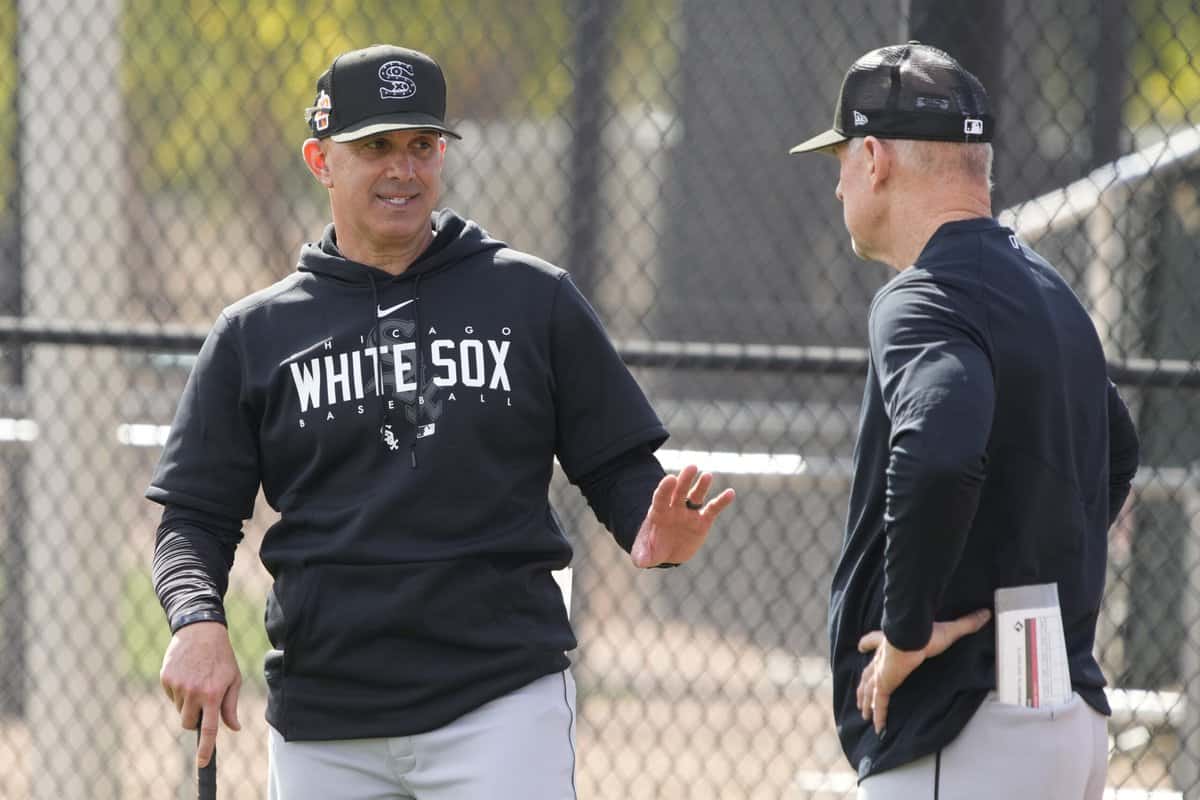Before and during Pedro Grifol's first spring training game as manager of the White Sox, he tried to ease the initial expectations for the Cactus League schedule by pre-empting the kind of mistakes that turned "midseason form" into a February and March cliché.
“It’s like I said from Day One. I want to see some mistakes. And then that way, we learn together."
Pedro Grifol, Feb. 26, 2023
This was about the only thing about Grifol's first few weeks that could be considered "relaxed." After drifting to a .500 record under a manager whose health issues sapped his abilities to run a team with conviction, Grifol's staff injected a whole lot of energy into the design of spring training. Working harder is often dismissed as eyewash, so Grifol wanted his team working smarter by mapping out drills and usage of space to minimize dead time, whether it took the form of inaction or useless drills.
“When in their game do they stand on the field somewhere for an hour?” Grifol said of requiring pitchers to shag. “I don’t like wasting time. Wasting time, mistakes come in dead periods. I like moving. That’s why I love the (pitch) clock, I love rotations out there, that’s why nobody stands around. I like the pitchers coming in, doing their PFP and coming out. I don’t like pitchers shagging, I don’t like wasting time. There has to be something else to do.”
That sounded all well and good, but it triggered some suspicions about Grifol that I detailed in an early March post that held up pretty well:
I think my mild misgivings stem from all of this emphasis placed on preparation. I don’t think anything Grifol is doing is eyewash, but, setting aside the specific dysfunction of the Tony La Russa era, I think there’s a reason why every team talks about a new manager’s detail-oriented, back-to-basics spring training as though his predecessor never thought of it. There’s a shelf life for expecting a new skipper to solve things. Eventually, everybody has to get to a place where a manager merely manages. If the talent never gets there, the manager isn’t likely to stay there. [...]
Since the White Sox introduced Grifol, everybody at 35th and Shields (or whatever Camelback Ranch’s address is) has stressed that if the White Sox fall short once again, it’s not going to be for a lack of preparation. That’s fine. You just have to stop yourself from thinking of the natural follow-up question. "What are they going to lack, then?" has a few ready answers.
It turns out the White Sox lacked baseball skills. They couldn't do the big things well -- hit homers, draw walks, and avoid giving up either -- and that revealed how they also miserably failed at the little things.
Grifol and his staff couldn't instruct his team out of this hole, and maybe no manager could. There was just no rhetorical contingency plan in the event of such failure.
In early August, Keynan Middleton said the Sox had no rules or guidelines, and thus no consequences. Grifol didn't really have a way to counter it publicly. Even by late August, when the White Sox were getting smoked by Baltimore toward the end of another losing month, Grifol was taking note of mistakes, but stopped short of confronting the chronic nature.
“At some point, if you don’t do things the way we want to do things as a team and as an organization, you’re probably not going to fit in this culture and environment.”
Grifol said he takes notes of good things and bad.
“If your name is on that list every single day after we’ve spoken about it, at some point there’s a problem. We’re not there yet with anybody. Those guys are making adjustments for the most part.”
The White Sox followed that 10-17 August with an 8-20 final month, rendering the adjustments just as imaginary as the foundation and the culture.
When spring training opens next month, Grifol might not express as much comfort with mistakes, but there isn't a whole lot he can say otherwise. The White Sox made a big show of attention to detail at Camelback Ranch, and it turned out they couldn't see the forest fire for the trees. Instead, they made mistakes for seven solid months, and they never showed the capacity to learn. Perhaps that's why Chris Getz compensated with an offseason that assumes that players can't be taught.





